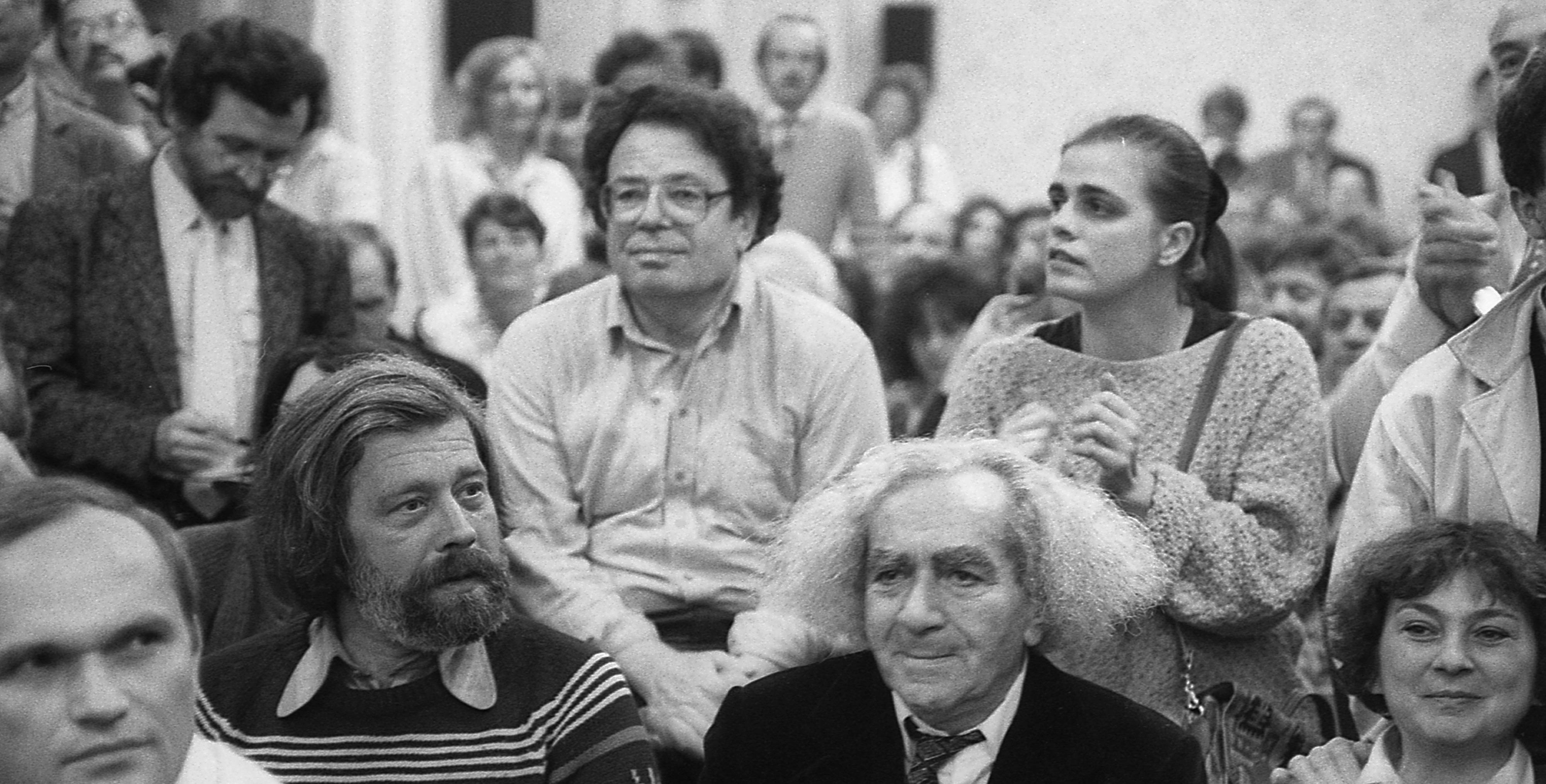Ferenc Laczó in Taxis:
 György Konrád passed away after prolonged illness on September 13, 2019, at the age of 86, two days after the architect László Rajk Jr. (who had just turned 70) and less than two months after the philosopher Ágnes Heller at the age of 90. The departure of three prominent Hungarian public intellectuals admired in Hungary and the world over has led commentators — perhaps especially since these deaths came so soon after those of Imre Kertész and Péter Esterházy — to mark “the passing of a key intellectual generation” and even “the end of an era.”
György Konrád passed away after prolonged illness on September 13, 2019, at the age of 86, two days after the architect László Rajk Jr. (who had just turned 70) and less than two months after the philosopher Ágnes Heller at the age of 90. The departure of three prominent Hungarian public intellectuals admired in Hungary and the world over has led commentators — perhaps especially since these deaths came so soon after those of Imre Kertész and Péter Esterházy — to mark “the passing of a key intellectual generation” and even “the end of an era.”
Konrád and Heller both belonged to that most unfortunate generation of Central and Eastern European Jews who were born during the Great Depression at the time of the rise of Nazism and Stalinist mass crimes. Along with novelists Imre Kertész and István Eörsi, philosophers Ferenc Fehér and György Márkus, historians György Ránki and Iván T. Berend, and economist János Kornai, Konrád and Heller were members of the most intellectually exciting generational cohort of Jews in twentieth-century Hungary — perhaps the most internationally renowned such group in modern Hungary, with the possible exception of the towering figures of György Lukács, Karl Polányi and Karl Mannheim, all of whom were born in Budapest between 1886 and 1893.
More here.
